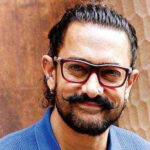The Chhattisgarh High Court in a recent order dismissed two petitions seeking quashing of an FIR registered by Kota police in April this year against professors of Guru Ghasidas Central University in Chhattisgarh’s Bilaspur district for purportedly asking 155 students to offer namaz on Eid during a National Service Scheme (NSS) camp.
The High Court cited a Supreme Court ruling from 2021, which said courts should not thwart any investigation into cognisable offences and not scuttle criminal proceedings at the initial stage, and that the power to quash proceedings should be exercised sparingly.
“When a prayer for quashing the FIR is made by the alleged accused, the court when it exercises the power under Section 482 CrPC, only has to consider whether or not the allegations in the FIR disclose the commission of a cognizable offence and is not required to consider on merits whether the allegations make out a cognizable offence or not and the court has to permit the investigating agency/police to investigate the allegations in the FIR,” the High Court observed.
One petition seeking quashing of the FIR was filed by the coordinator for the NSS camp, Professor Dilip Jha, who was arrested in the case and was granted bail. The second petition was filed by six assistant professors, who were also named as accused in the case. As per the FIR, the students had gone to Shivtarai village in March this year as part of the NSS camp, and on the day of Eid, non-Muslims students were also purportedly asked to offer namaz along with the Muslim students. The petitioners deny that any student was forced to offer namaz.
The counsel for the professors argued that the complaint by students was lodged on April 14, after a delay of 14-15 days, and that the complaint was “politically motivated”. Even though 150 students participated in the camp, only three lodged the FIR, the petitioners argued.
“The participants were not compelled by the petitioners to offer namaz, and on a false accusation, the police registered the offence,” the counsel argued.
On the other hand, the counsel for the state argued, “The petitioners, by using words and visible representations, compelled the complainants, who belong to the Hindu religion, to offer namaz.”
Chhattisgarh High Court Chief Justice Ramesh Sinha and Justice Rakesh Mohan Pandey dismissed the petition, pointing out that the petitioners are already out on bail, investigations are ongoing, and observations cannot be made on the merits of the case.








